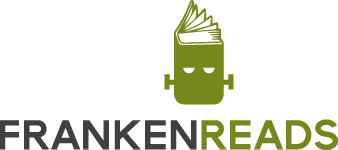Selected materials helpful in teaching the novel, plus selected syllabi appropriate for the university level. We would especially like to add K-12 lesson plans and other secondary education materials to this list: please consider sending us suggestions!
Lesson Materials
Teaching Frankenstein with the New York Times (2017)
https://www.nytimes.com/2017/02/15/learning/lesson-plans/teaching-frankenstein-with-the-new-york-times.html
Gives detailed teaching ideas for Frankenstein in four areas: Frankenstein and Bioethics, Frankenstein and Friendship, Writing Fiction Based on Real Science, and The Power of Appearance. Provides activity sheets and links to many useful readings and resources around the web.
“Tales of the Supernatural” Lesson Plans Grades 9-12, EDSITEment
https://edsitement.neh.gov/lesson-plan/tales-supernatural
Provides learning objectives and activities for students grade 9-12 centered around Frankenstein and other literary works of horror.
Modern Language Association, Approaches to Teaching Mary Shelley’s Frankenstein, edited by Stephen Behrendt (1990).
https://www.mla.org/Publications/Bookstore/Approaches-to-Teaching-World-Literature/Approaches-to-Teaching-Shelley-s-Frankenstein
The MLA’s popular “Approaches to Teaching” series includes this indispensable, if somewhat old, guide to teaching Frankenstein. This guide is aimed at the college level but can be used for K-12 as well.
Multimedia Classroom Materials
Frankenstein200 Game
https://frankenstein200.org/
An interactive game for children that allows players to “perform experiments, explore hidden areas of science, and assist a pair of young scientists as they unravel a mystery in a cutting edge digital experience.”
Shelley Sites/Sights
https://www.rc.umd.edu/reference/misc/shelleysites
A Romantic Circles resource that provides photographs of the current conditions of the locations in which Percy Bysshe Shelley spent the three decades of his life, including much of his life with Mary.
Mary Shelley’s Frankenstein — in Charts
https://www.theguardian.com/books/gallery/2018/jan/13/mary-shelleys-frankenstein-in-charts?CMP=Share_iOSApp_Other
A feature from The Guardian with some beautifully-designed graphs, maps, and charts with some key statistics and information about Frankenstein, including a map of where characters travel, a timeline of Shelley’s life, and the order in which characters die in the novel.
Frankenstein: The Afterlife of Shelley’s Circle
http://exhibitions.nypl.org/biblion/outsiders/frankenstein
Online exhibit from the New York Public Library with essays, image galleries from plays and films, and text and images about Mary Shelley’s composition of Frankenstein.
BBC Radio 4, In Our Time: “1816, The Year Without a Summer.”
https://www.bbc.co.uk/programmes/b077j4yv
Melvyn Bragg speaks with Clive Oppenheimer, Jane Stabler, and Lawrence Goldman about the remarkable weather conditions during the Geneva Summer of 1816, a summer whose stormy climate saw the genesis of Mary Shelley’s Frankenstein and John Polidori’s The Vampyre.
BBC 2 documentary: “Frankenstein and the Vampyre: A Dark and Stormy Night.” (2014)
https://app.curiositystream.com/video/1882/frankenstein-and-the-vampyre-a-dark-and-stormy-night
A dramatised documentary that records one of the most important nights in literary history when Lord Byron, Mary and Percy Shelley, and their coterie gathered together at the Villa Diodati to tell ghost stories.
College Syllabi
SP18: ENGL-10 Sec 01 – Great Works of Lit
https://sjsu.instructure.com/courses/1253726
Katherine D. Harris at San Jose State University has structured a General Education course of Great Works of Literature entirely around Frankenstein. The syllabus includes not just readings but also short videos, which are embedded directly into the open syllabus. Students are tweeting as a character from the novel as well as organizing a film festival and a series of open-classroom events (a trial of Victor Frankenstein, a stage reading of an excerpt from Presumption, and a debate on the ethics of monster vs. creature.
HIST 315: Frankenstein
https://www.eou.edu/history/files/2013/09/315-syllabus.pdf
Nicole Howard teaches a course in the history of science based entirely on Shelley’s tale. It uses Frankenstein to make links backward between Romanticism and the Enlightenment, as well as forward to the twentieth and twenty-first centuries.
Lit 437: Studies in Genre – The Novel
https://www.msubillings.edu/cas/engphil/documents/course_syllabi/nurmi_syllabi/LIT%20437%20Syllabus.pdf
Tom Nurmi’s “Studies in Genre: The Novel” offers a helpful blend of literature and theory, reading Shelley’s Frankenstein alongside Bahktin, Spivak, Anne Stevens, Nancy Armstrong, and Jeffrey Jerome Cohen.
Science and Modern Life from Frankenstein to Google
http://www.dancohen.org/science/
Dan Cohen’s history course “Science and Modern Life from Frankenstein to Google” examines Shelley’s novel within a nineteenth- and twentieth-century context and covers an array of scientific subjects.
Mary Shelley’s Frankenstein: The Bildungsroman and the Search for Self
https://uh.edu/honors/Programs-Minors/honors-and-the-schools/houston-teachers-institute/curriculum-units/pdfs/2006/ethics/counihan-06-ethics.pdf
Erin Counihan writes a detailed outline on designing a high school-level English course with respect to the Bildungsroman and uses Frankenstein as the case study.
Women’s Studies 4527: Women and the Horror Film
https://wgss.osu.edu/sites/wgss.osu.edu/files/4527%20LM%20AU12.doc
Prof. L. Mizejewski’s Women’s Studies course “Women and the Horror Film” explores two generic trajectories: the “serial killer” subgenre following from Frankenstein and the “undead” genre following from Dracula.
English 105: The Literary Imagination
https://www.cwu.edu/english/sites/cts.cwu.edu.english/files/documents/1163%20Syllabus%20105.011%20Martinson.pdf
Matt Martinson’s writing composition course investigates Shelley’s Frankenstein as a work of prose fiction that speaks to various contemporary genres, including poems, plays, and short stories by a range of authors.
English/CCT 691: Technoculture from Frankenstein to Cyberpunk
https://www.ub.edu/prometheus21/articulos/obsciberprome/irvine.pdf
In “Technoculture from Frankenstein to Cyberpunk,” Martin Irvine presents Shelley’s novel as part of a larger genre, emphasizing monsters of technology, mad scientists, and the gendering of technoculture.
English 424/524, Advanced/Graduate Study in a Major Text: Mary Shelley’s Frankenstein
https://www.rc.umd.edu/pedagogies/syllabi/syllabi/linkinfrk.html
Harriet Kramer Linkin outlines a graduate-level course focusing on Frankenstein. Her syllabus includes a useful list of related literary texts.

 Join or donate!
Join or donate!